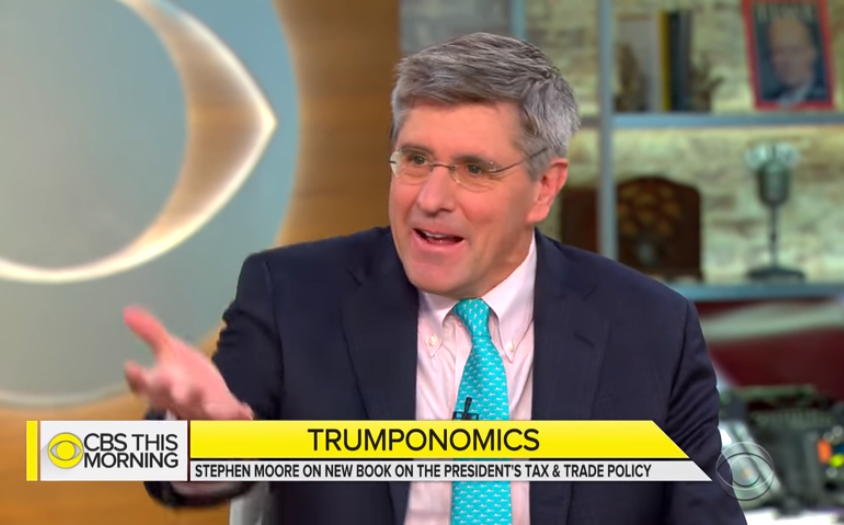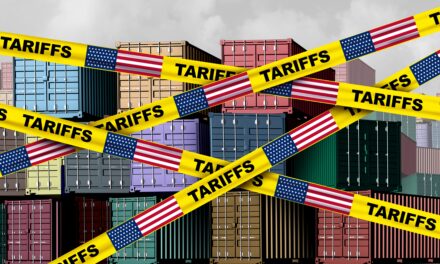Stephen Moore, a conservative commentator whom President Donald Trump had tapped for the Federal Reserve board, withdrew from consideration Thursday after losing Republican support in the Senate, largely over his past inflammatory writings about women.
Trump tweeted the news of Moore’s withdrawal, only hours after Moore had told two news organizations that he was still seeking the seat and still had the White House’s support. Trump announced otherwise early Thursday afternoon.
“Steve won the battle of ideas including Tax Cuts and deregulation which have produced non-inflationary prosperity for all Americans,” the president tweeted. “I’ve asked Steve to work with me toward future economic growth in our Country.”
In a note to Trump that he released later, Moore said the “unrelenting attacks on my character have become untenable for me and my family and three more months of this would be too hard on us.”
“I am always at your disposal,” he concluded.
Numerous Republican senators had said they objected to Moore’s disparaging past writings about women or had sidestepped questions about whether they would back him. In recent weeks, Moore had said he regretted the writings and said they were meant as humor columns.
The Senate’s second-highest ranking Republican, Sen. John Thune from South Dakota, said Wednesday that Moore “has issues up here.”
And Sen. Shelley Moore Capito, R-W.Va., said it was “hard to look past” Moore’s previous statements, while Sen. Marsha Blackburn, R-Tenn., said his comments were a topic on which she would have questioned him.
In 2000, in a column for the Washington Times, Moore wondered why women “showed up in droves in tight skirts” at college parties if “they were so oppressed and offended by drunken, lustful frat boys.”
He also said women should not cover basketball games on television unless they wore revealing clothes.
As an adviser to Trump’s presidential campaign, Moore helped design the 2017 tax cuts. Yet his candidacy immediately met widespread skepticism about whether he was qualified for a Fed board position and concerns about his background as a highly politicized commentator on economic issues.
He had called for the Fed to raise interest rates in the aftermath of the 2008 financial crisis, just when the central bank and other agencies were cutting rates or taking emergency actions to help resuscitate the economy and the banking system. After Trump’s election, Moore reversed course and argued for rate cuts even though the economy was much healthier by then.
Sung Won Sohn, a finance and economics professor at Loyola Marymount University in Los Angeles, said Thursday that he thought Moore’s withdrawal was a positive development for the Fed.
“The most important asset a central bank has is its reputation and credibility,” Sohn said. He contended that putting Moore on the Fed board would have imperiled those standards.
After Trump named Moore as a potential nominee in late March, Gregory Mankiw, a Harvard professor who was a top adviser to President George W. Bush, observed that Moore “does not have the intellectual gravitas for this important job” and urged the Senate to keep him off the Fed.
Moore has argued that the Fed should follow changes in the prices of commodities, such as oil or farm goods, and raise rates if those prices rose, to stem inflation. Yet that approach would have caused the Fed to raise rates in 2008 as oil prices spiked, which would have worsened the Great Recession.
A conservative commentator for more than two decades, including for the Wall Street Journal editorial page, Moore is now a visiting fellow at the right-leaning Heritage Foundation. He later co-wrote “Trumponomics,” a book touting the president’s policies.
Trump’s other Fed board pick this year, Herman Cain, withdrew over past allegations of sexual harassment and infidelity.
© The Associated Press. All rights reserved.




